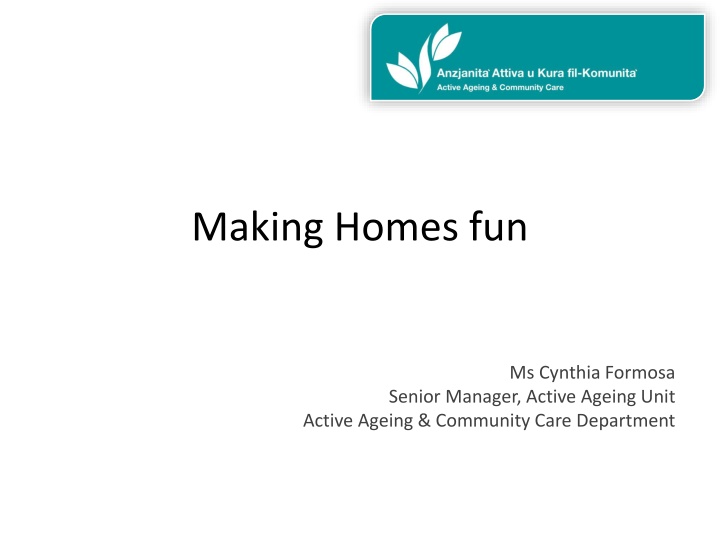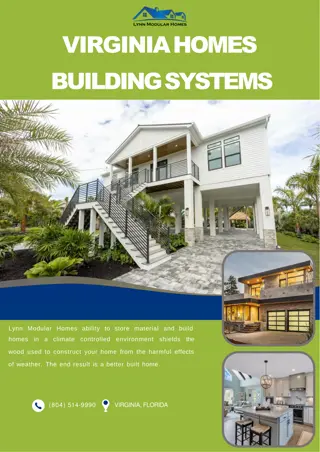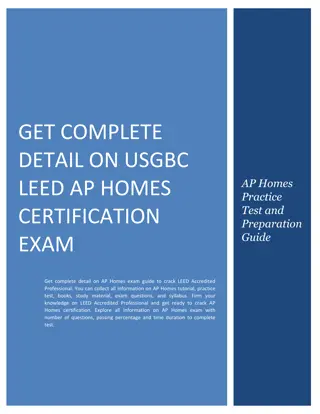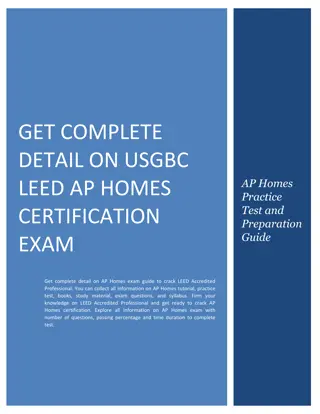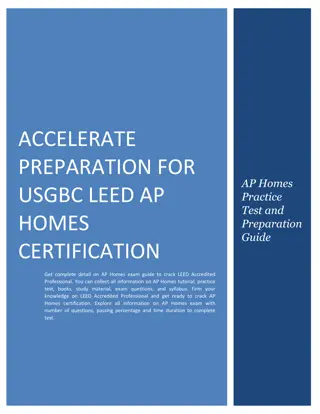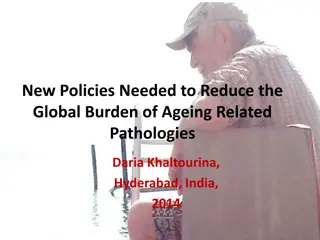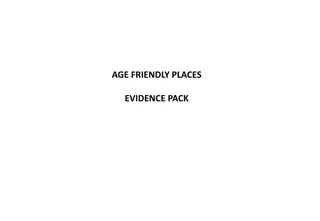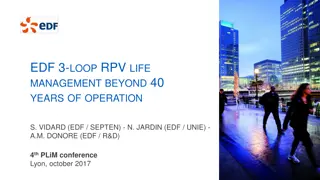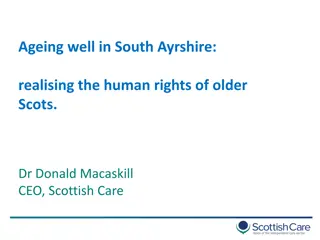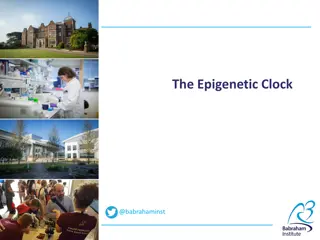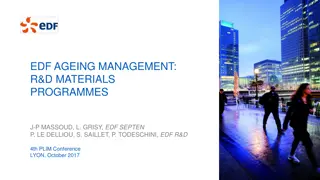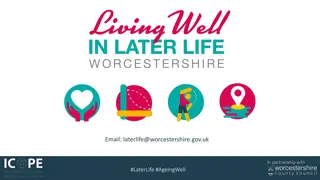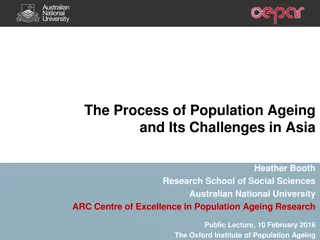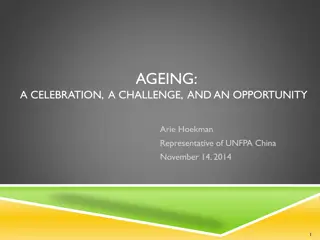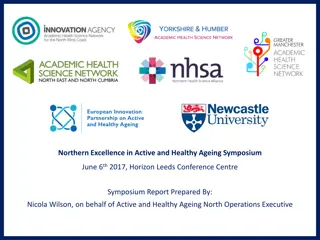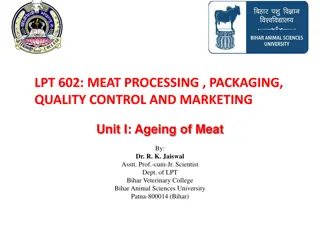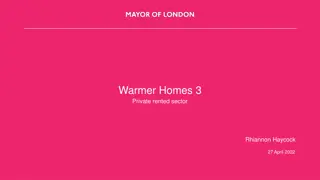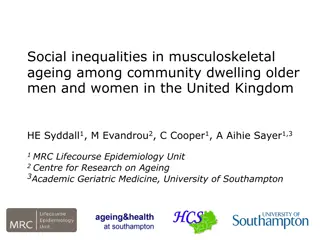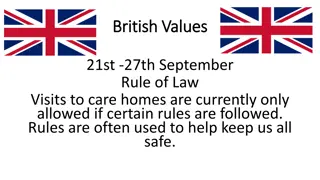Enhancing Active Ageing in Care Homes: A Pilot Project Approach
The pilot project "Making Homes Fun" aimed to promote active ageing among residents in a care home through various activities. The methodology compared the wellbeing of participants versus non-participants. Carers implemented daily activities, and feedback and data collection were conducted to measure project outcomes. Results showed improvement in resident engagement through diverse activities like crafts, cookery, outings, and more.
Download Presentation

Please find below an Image/Link to download the presentation.
The content on the website is provided AS IS for your information and personal use only. It may not be sold, licensed, or shared on other websites without obtaining consent from the author.If you encounter any issues during the download, it is possible that the publisher has removed the file from their server.
You are allowed to download the files provided on this website for personal or commercial use, subject to the condition that they are used lawfully. All files are the property of their respective owners.
The content on the website is provided AS IS for your information and personal use only. It may not be sold, licensed, or shared on other websites without obtaining consent from the author.
E N D
Presentation Transcript
Making Homes fun Ms Cynthia Formosa Senior Manager, Active Ageing Unit Active Ageing & Community Care Department
Geriatric Mental Health Consultation Workshop
Making homes fun pilot project within Msida Home Aims: To encourage and promote active ageing through various groups and individual activities To empower residents to become more active within their care home
Methodology Compared the wellbeing and safety of residents participating in activities to those not involved. The residents on the 2ndfloor of Msida home were chosen as participants and comparing group. 2 samples of older adults: one group of 12 residents, participating in the pilot project, and a group of 10 residents who will not participate. Period of implementation was 3 months, March- June 2017.
Three carers were chosen to implement activities within the home. Sessions were held Monday to Friday, mostly during morning shift. OT and PT were roped in to offer consultation regarding activities for particular residents. A psychiatrist was also on board to assess residents. At the end of the 3 months, achievements, quality of life and wellbeing, for both groups, were compared to measure the outcomes of the project.
Meeting: working group & home manager Meeting: working group, home manager, AF, OT , PT & psychiatrist Feedback & documentation Introduction of the project with residents Focus Group Personal History Individual Activity Group Activity Conclusion
Data Collection Initial Focus Group with residents PHQ9 (initial)- Patient Health Questionnaire Incident reports before the project and during Log books of activities Complaints PHQ9 (final) Focus group with staff Interviews with AF and home manager Interviews with residents
Results Activities included: crafts, cookery, outings, activities for special events, watching films, outings, inviting guests.
Results Residents PHQ-9 PHQ-9 Before start of At the end of Project 3.10 Project 2.30 Residents not Mean exposed to Std. Deviation 2.685 1.829 activities (N=10) Residents exposed Mean 3.92 1.50 to activities (N=12) Std. Deviation 2.999 1.168 Summary of PHQ9 Results at a group level The groups were comparable at the beginning and at the end of the project, however the PHQ9 is lower at the end of the project.
Graph 2: Summary of PHQ-9 results at an individual level (RESIDENTS NOT EXPOSED TO ACTIVITIES) Graph 1: Summary of PHQ-9 results at an individual level (RESIDENTS EXPOSED TO ACTIVITIES) 9 8 8 7 resident 1 resident 2 resident 3 resident 4 resident 5 resident 6 resident 7 resident 8 resident 9 resident 10 resident 11 resident 12 7 6 6 5 Total PHQ-9 Total PHQ-9 5 4 4 3 3 2 2 1 1 0 0 Before project After project Before project After project
Results from interviews For the AF this project was a positive experience during which they got to know the residents better and enjoyed involving them. The staff identified that the project caused envy between the elderly who were participating in the activities and the other residents and anger on behalf of the non- participants. Some residents decreased complaints during the project. Complaints resumed following its termination. The staff and head of home described episodes of decreased behavioural difficulties during the project. Several persons with dementia where engaged in activities compared to spending their time staring at the walls.
Feedback from residents Comments Intervention group Control group Very positive 5 1 Positive 3 2 Passive / Indifference 3 4 Negative 1 0 Some comment: allar ares kultant ma jkunux huma..nies b ali li ma tistax to ro importanti li jkollok f hiextag ddimo ok u t addemmo ok ukoll... jag mlu differenza fil-kwalita tal- ajja mela. Wa dek ikollok afna sibijiet iena ... waqt l-attivitajiet tg eda ftit
Conclusions Overall the project was successful and residents enjoyed engaging in activities. The activities enabled increased well being, decrease in complaints by residents and decreased behavioural difficulties. Very limited number of individual sessions despite some residents would have benefitted. There was a limited choice of activities and sometimes childish activities organised due to lack of knowledge. Empowerment of residents was not achieved.
The Way Forward: Making Homes Fun 2018
